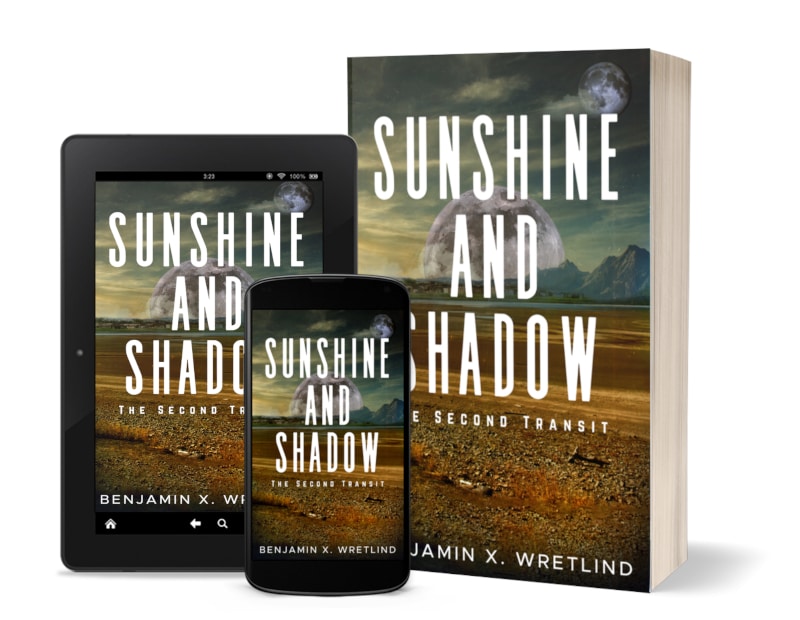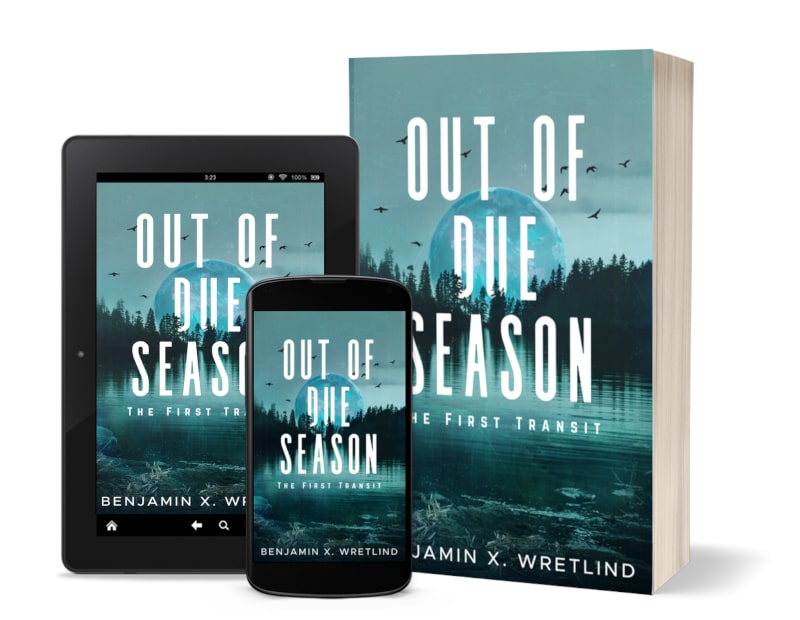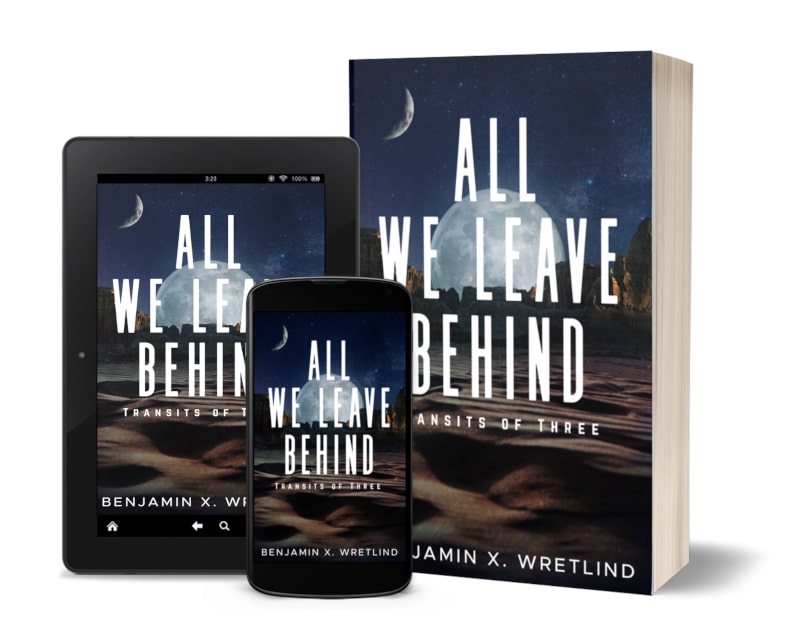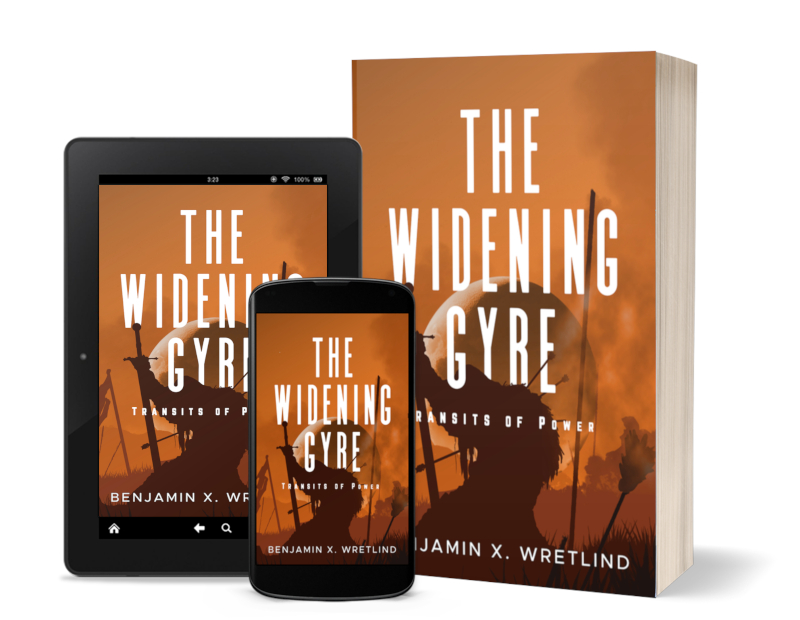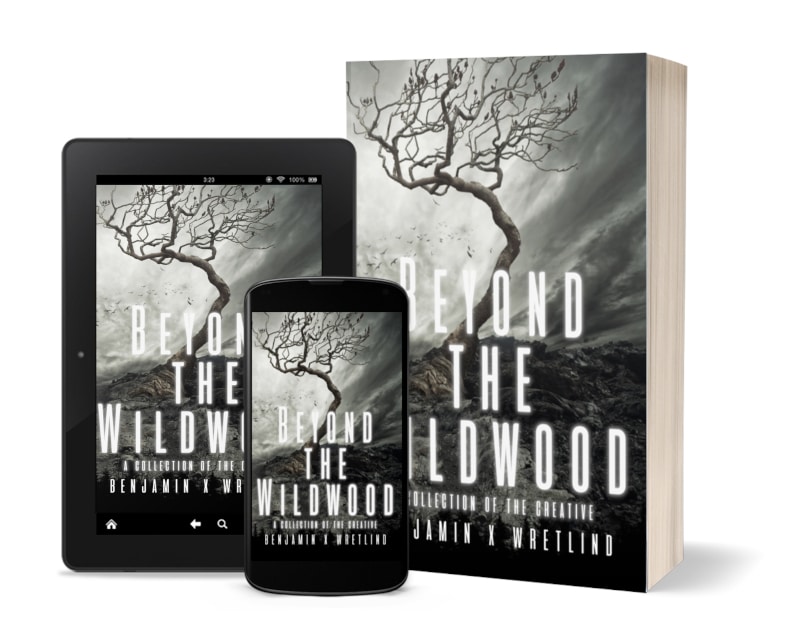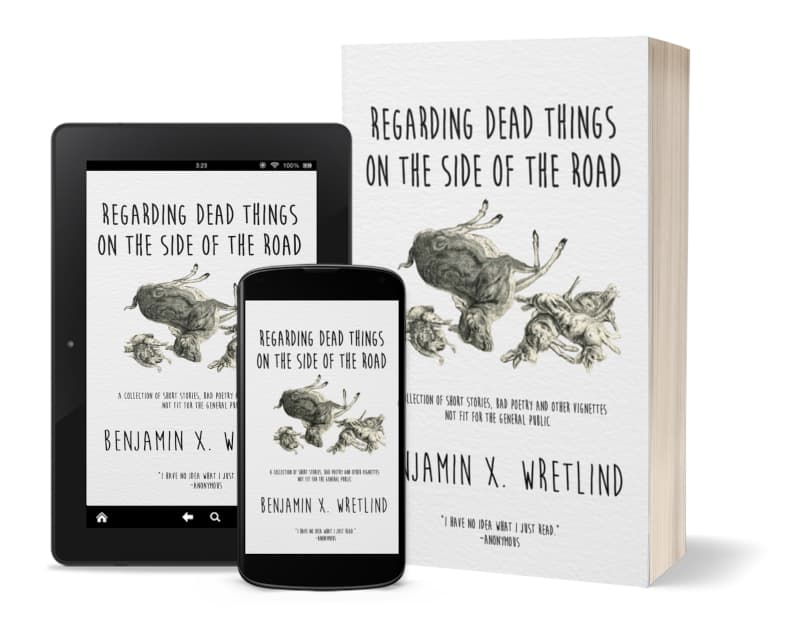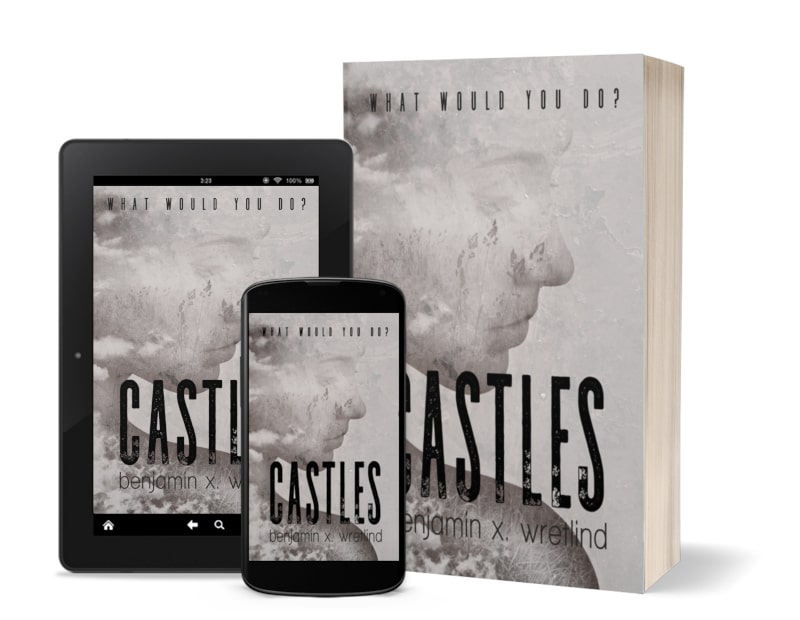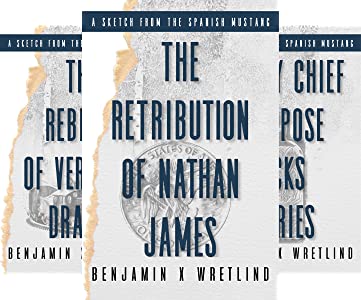The following excerpt is from Sunshine and Shadow: Exodus, or The Second Transit, which was released on July 12, 2022.
CHAPTER TWO
Owen Lucas, Trisha’s older brother, ran. Behind him were his father Daniel and Ryan’s father Elisha. They crossed the lakebed to the ship—a distance of nearly two miles—in less than twenty minutes, then bounded around the backside a few minutes later. The hole Candice had told them about was another hundred yards from the edge of the ship.
But something was wrong.
Muddy water, red and frothy, bubbled up from where the hole should have been. It flowed out and covered the surrounding lakebed, then quickly sank back into the soil. It hadn’t rained in over three months, so the idea that any water might be present was unexpected. While Candice had mentioned the water in the bottom of the pit into which the other children fell, her frantic explanation was entirely devoid of specifics and inclined toward exaggeration. Water in a lakebed that hasn’t seen water in years? Monsters with tentacles that looked like tree branches? It was too fantastical.
“What is that?” Daniel asked when he caught up to Owen, his chest heaving with the effort of the run.
“Did you bring the rope?” Owen asked his father.
“Elisha has it. You’re not going to go in there, are you?”
“If that’s where they are, then yes. I have to.”
Elisha came to a stop next to them, the rope in hand. He wasted no time. “I’ll tie off to Daniel,” he said. “Owen, take the other end and wrap it around you. Make sure it’s tight.”
Owen did as instructed, and in less than a minute from arriving at the destination, Daniel and Elisha were anchored to the lakebed while Owen approached the hole and the bubbling water.
“Be careful, son,” Daniel said. “If you have trouble, pull on the rope.”
Owen nodded and stepped to the edge of the water. It was cold against his ankles and feet. The animal-hide moccasins he wore soaked up the water and made a mockery of protection. He quickly took them off.
Owen watched the water as it bubbled up, then splashed on the lakebed floor. The dirt around the hole soaked the water up like a sponge, however, impossibly remaining dry. The history of the settlement included stories of the rain the elders had witnessed during their first year after Transit, but since then, rain came only in spurts, once or twice a month, maybe. Water was plentiful from wells and lakes near the settlement, but to this date, forty years since the settlers arrived, there had been no mention of any in or under the lakebed.
This was something new and horrific.
With a deep breath, Owen jumped into the hole, feet first. He knew this hole from his adventures years ago when he was Ryan’s age. Most of the kids knew it, despite parental warnings to never go in the holes. It was a rite of passage, something a kid had to do to prove they could face any trial or tribulation in the future. Of course, that was just an excuse the older kids told the younger ones to get them into the holes with the devious intention of scaring them. Never had anyone who ventured deep down found anything remotely like whatever Candice blathered on about. They were just empty caves, full of rocks and dust.
Now one of them was filled with cold, muddy water and Owen’s sister Trish, brother Killian and Ryan Page were deep in it.
Owen couldn’t see anything when he opened his eyes underwater. Whatever silt or mud that was in the water stung, and he reflexively closed them again. Even though he knew this particular hole and approximately where Candice was when the others fell in the pit, he was in no position to find it. With a frustrated grunt, he pulled on the rope.
In seconds, Owen was out of the water. As he rolled over on the lakebed and took a deep breath of air, his father and Elisha rushed up to drag him from the edge.
“Can’t see anything down there,” Owen said. He let out a frustrated grunt and brushed his long black hair back from his face with a muddy hand. “It’s all mud. Need a mask.”
“They’re rotted. You think a dive light will work?” Daniel asked. “There are some still left on the ship.”
Elisha shook his head. “Whatever lights were left on the ship are rotted, too. The batteries were leaking the last time anyone took inventory.”
Owen looked at the hole. The bubbling water seemed more forceful than it was before. Shadows from clouds overhead darkened as the sun set. Candice broke the news over an hour ago. There was no way anyone was still alive down there.
Daniel said as much. “They’re gone.”
Owen stood, brushed the mud and water from his pants, and picked up his moccasins. The weight of losing both his sister Trisha and brother Killian as well as Ryan pressed down on him. He fell to his knees, his eyes locked on the hole and the newest grave. The settlement had its share of tragic deaths over the years, and each one was painful to the community. But this was different. This really hit home.
Daniel knelt beside Owen and put his arm around his son. They both stared at the hole as Owen tied his moccasins back on. Elisha walked to the edge and screamed his angst. Owen knew Candice was not the cause of this tragedy, and yet as the only one who survived, she would take all the punishment.
Elisha rolled up the rope and threw it to the side. Owen followed the man’s gaze toward the rest of the lakebed, its dryness in contrast to the water bubbling in the hole.
The bundled rope splashed.
Owen looked down. The water was no longer being absorbed into the lakebed. It pooled around both his and his father’s knees and under Elisha’s feet. From the hole, the sound of rushing water increased.
“Dad?” Owen said, stunned.
Daniel squeezed Owen’s shoulder. “I’m sorry, son.”
“No, Dad. Look down.”
Daniel looked at the ground, then stood quickly. What had been a dry lakebed for all of Owen’s life—and, as far as he knew, since the elders first arrived—now showed signs of retaining water. It never did that even when it rained; all water had been mysteriously absorbed the second it hit the soil. It was why the elders called this dry lake the Barren Sea.
As they all stared at the ground, more pools appeared. Owen stood with his father and looked around. Everywhere there were signs of water, not like the mirages they saw on hot days. If the clouds were not so ominously dark, the lakebed might reflect the sky and look like a real lake, not a hardpan plain of cracked dirt dotted with holes.
The holes. Owen looked around. There were hundreds of holes on the lakebed, although most were too small for anyone to enter. All of them, it appeared, seemed to have water bubbling forth from them like muddy fountains.
“We have to go,” Elisha said. He ran over to where he threw the rope and picked it up. “No telling what’s under our feet.”
As if in answer, Elisha’s foot sank into the ground up to his knee. He screamed. Daniel and Owen both rushed to help pull him out. They splashed through the cold puddles and grabbed Elisha’s shoulders. With a grunt and a low sucking sound, they pulled him free.
“Hurt?” Daniel asked.
Elisha nodded. “Knee is killing me.”
“Run, Owen,” Daniel said. He pushed his son toward the lakeshore and the settlement beyond. “Tell the Council. We’ll be right behind.”
Owen ran, his wet moccasins less a hindrance than he thought they would be. The animal skin tightened around his feet and made his steps sure. He bounded between puddles as much as he could and then found true dry ground as he approached the side of the ship, its enormous hull casting a much darker shadow than the clouds did. It looked as if the ground was still dry the closer he got to the shore.
He glanced behind him. His father supported Elisha as they splashed through puddles.
From above, the sky opened up and rain fell.
—
Owen was met at the eastern gate to the City of Nod by his mother, Elizabeth, and about ten other adults. Elizabeth’s face was a mask of dread. “They’re gone, aren’t they?” she said.
Owen rested his hands on his knees and nodded as Elizabeth wailed. He wanted to comfort her, to explain there was nothing he could do, but he would leave that to the surrounding women who swarmed in with their embraces. His father would be back soon, as well. For now, he had a warning to impart.
He looked up at the men standing in the crowd. “Where’s Brother Leo?”
“In the Council Chambers,” someone said. “Talking to Candice’s parents.”
The Council Chambers were in the middle of the settlement, its door equidistant from all four gates built in the wooden and metal wall that protected the settlement from whatever lay outside. Not that there were many threats, but as the elders claimed they were unsure of what else occupied this new world, they spent the first year constructing as much of a barrier as they could. According to legend, the ship had been uninhabitable and as they all feared the possibility of the unknown, they quickly constructed a wall around their encampment to house the original 241 colonists. Thirty-nine years after they had erected the last of it, it was apparent there was no need. Still the wall remained, if not a physical protection then a psychological one. There were now over seven hundred people living within the walls, and another hundred who had built small houses next to farm fields outside.
The wall and the first building completed was a mix of metal scavenged from the ship and wood cut from trees in Brewer’s Forest to the west. It was massive, originally built to protect most of the weaker colonists from the elements. Over time, as the elements became less of a threat, the elders had moved out and built their own homes. That original structure had now become a Council Chamber, a central meeting place and the residence of both the aldermen and the leader of the City of Nod, Brother Leo Williams.
Owen banged on the door to the Council Chamber and waited for someone to open it. His frantic run from the lakebed to the gate to the chamber while wearing muddy clothes had brought attention. Adults and children alike lined the streets outside their homes, watching a fifteen-year-old boy seem to lose control. In the time after the First Transit, hundreds of tragedies had occurred, but the enormity of loss had never lessened. Everyone hurt, perhaps not as much as the immediate family—the parents of a child who had died from whatever lung disease infiltrated the settlement one year, the husband who had lost his wife when she went on a hunt, or the fiancées who had lost their would-be spouses to unknown animals on a scouting trips. Tragedy was the glue that held the community together.
The door opened. Brother Leo, the leader since Elder Jackson Liao died in Year 32, wiped his face with a massive hand and stepped aside to let Owen in. He was imposing, his olive skin like a shadow in the dim light inside. Owen knew Leo he was only thirty-seven but he looked so much older up close, especially with the deep lines around his brown eyes.
“Did you find them?” Leo said.
In the first room by the door, Richard and Elenore Victor held each other, their faces wet with tears. Their daughter, Candice, was the only survivor, but they grieved for everyone else. Candice was nowhere to be seen.
Owen shook his head. “No, and there’s another problem.”
“What is it?”
“There’s water bubbling up from all the holes.”
“Water?”
“Muddy water. Candice was right when she said the pit filled. It was more than the pit, though. It was the whole lakebed.”
“What about Ryan? Or Trisha or Killian?”
Owen swallowed. “No sign of them, but the water made it impossible to go into the hole. There’s more, too.”
Leo held up his hand to silence Owen, then motioned him to follow. He stopped in front of Richard and Elenore, said something to them that Owen didn’t hear, and continued down a hallway. As Candice’s parents left the Council Chamber, Owen followed Brother Leo.
At the end of the hall, past ten different rooms, Leo stopped and knocked once on a closed door before opening it. Owen was directed inside to a large table surrounded by five other men and women, the aldermen of the City of Nod. Evidently, this was where Richard and Elenore were questioned about Candice, or more likely, questioned about why they let Candice go into the holes. Owen had never been in this room, as his labor status in the community was still unknown, but he had heard plenty of rumors.
The five aldermen looked at Owen with accusatory eyes. He wasn’t at fault in any of this, but perhaps their old age or the stress of leadership had formed lines on their faces in such a way that they always looked angry. The oldest alderman, Elder Gordon Bryant, sat at the head of the table. He was the only member of the Council who had been a part of the Transit. Pushing eighty, the man’s face was etched with years of tribulation and tragedy. Next to him sat Brother Moses Proby, slightly older than Leo, and considered the brains of Nod. He was busy scribbling feverishly in what looked like a journal. The three other aldermen were all Leo’s age, but known only to Owen by name: Brother Henry Morris, and Sisters Alexis Miller-Beck and Esther Gadfrey. It was not surprising that Owen didn’t know anyone on the Council that well. When a person was selected as an alderman, they were sequestered inside the chambers for most of their lives, forbidden from having any more contact than needed to perform their duties. Only one in the room had offspring, and that was Brother Leo, himself.
There were only two seats open, and Leo directed Owen to the one in the middle, the one set slightly back from the rest of the table.
“Tell them what you told me,” Leo said.
Owen flushed in the brightness of the darkened stares from everyone around the table. “Um, there was water coming out of the hole my brother and sister went in.”
“Water?” Gordon scoffed. “There’s never been water in the Barren Sea since the day we got here.”
“Yes, sir. I know that. But that’s what was bubbling out of the holes and why I’m wet.”
Esther looked up. “First off, we are deeply sorry for your loss.” Esther looked at Gordon. “Some of us are not refined enough to have manners. Second, you said water was bubbling out of the holes? I thought they went into only one hole.”
“Yes, ma’am. Holes. By the time I left to come back here, all the holes on the lakebed had water coming out. At least the ones I could see.”
“Henry?” Leo looked at the man next to him. “You said something about the water level last week. Is there a connection?”
Henry folded his hands in front of him. Thin, with only a wisp of gray hair left on his head, the man looked much older than he was. Born in the second year after Transit, his father and mother were both engineers who taught him everything they knew about setting up windmills and water systems. He was the reason the City of Nod had fresh water daily.
“The water level in the wells has been rising over the past year,” Henry said. “The windmills don’t need to work as hard to bring it to the surface. We think the increase might have to do with the theoretical shift in seasons.”
“That’s a crock of shit.” Gordon spat. “The science behind that has never been proven, and whatever insight Eldress Donna could have given us went with her to the grave.”
“You never liked her, did you?” Alexis said.
“My like or dislike has nothing to do with an unproven climatological farce perpetrated to sow fear into the original colonists so we would move further away from the shore.”
“We’re two miles away, Gordon.”
Esther seemed to stifle a smirk. “So the Shift is political.”
“It is what it is,” Gordon waved his hand dismissively. “The readings Eldress Donna took when we first arrived were suspect. How could they not be suspect when the instruments we brought along were outdated and required solar power to operate? If you recall your history, Sister Alexis, we saw little of the sun for almost two years, and when it came out, the batteries didn’t have time to charge.”
“I recall. I also recall that when the sun stayed out, the instruments worked flawlessly over the next twenty years and provided enough signs that when combined with stratified changes in the rock found along Helen’s Esker proved there was a potential decadal shift in the weather patterns that might bring rain instead of dust.”
“What you found in that hill proved nothing. Have you seen this shift?”
“It’s not here yet.”
“And it will never be here. Donna claimed it would be decadal, but after forty years, there hasn’t been so much as a hint of change. It’s as dry as it has been and will continue to be. We get what? Eight to ten inches of rain a year?”
“That has been decreasing, too,” Henry said. “But the water level in the wells has been rising.”
“Great. More water for us. It’ll feed the farms.”
“It’s not that simple,” Esther said. “If the water levels are rising, and if this boy is correct, then we could be witnessing the very beginning of the Shift. It’s been cloudy on and off for a full cycle of the Short Moon.”
“And very little rain!” Gordon sat back in his chair and folded his arms. His bushy eyebrows covered intense green eyes that gleamed with contempt for the others. “You can call that a month, you know. You don’t have to keep using ‘cycle of the Short Moon.’ We may be old, but we’re not slow.”
Sister Esther ignored the comment and turned to Owen. “What did the water look like?”
“Muddy, ma’am,” Owen said. “And cold. At first when it hit the soil it was absorbed, too.”
“Like the rain?” Alexis asked.
“Yes, ma’am. Like the rain. But that didn’t last long.”
“What do you mean?”
“It puddled.”
“Puddled?” Esther’s eyebrows rose. “It’s never puddled before, even during massive downpours.”
“No, ma’am. I’ve never seen it act this way before.”
The room was silent for a moment. Brother Moses wrote more in his notepad, something of which Owen was envious. Paper was in limited supply and made by only by a few. It was reserved for the powerful, the teachers, and the scribes. No one else seemed to have any, and as a result, very few children ever learned to write beyond that which was required for school unless they were moved into a special class. While children could read, the amount of material was limited to some encyclopedias, whatever else the elders brought with them, and the few documents the scribes had produced over the years. Most of those were boring genealogies.
“How old are you, kid?” Gordon asked.
“Fifteen, sir.”
“Tishbe or Earth?”
“Tishbe.”
“That would make you…nineteen on Earth. Right? Do you know what a nineteen-year-old on Earth should be doing with his life right now?”
“No, sir.”
“College. Maybe having sex with another nineteen-year-old. Working at a fast-food restaurant and playing video games.”
“Fast food, sir?”
Gordon waved his hand. “School teachers tell you nothing. All revisionist history, if you ask me.”
Leo, who had remained silent, cleared his throat. “Is there anything else you can tell us about what you saw?”
Owen shook his head. “No, sir. Only water from the holes and puddles on the lakebed.”
“Nothing like what Candice said she saw?”
“No, sir. I was only in the water for a few seconds. I couldn’t see anything because it was muddy.”
Leo nodded. “Thank you. You can go now. You’ve been a great help. Now, go see to your mother and father. They need you.”
“Yes, sir.” Owen stood to leave, then stopped. “Aldermen?”
“Yes?”
“Is the Barren Sea going to fill?”
Henry looked around at the others, then said, “We don’t know. The theory of the Shift is that after a rainy period, there is a dry one. The elders believed they may have arrived at the beginning of this time. It stopped raining so much after the first year. During the dry period, the water is diverted away from the lakebed to some unknown part of the planet. Donna, the original meteorologist on board the Circle of Light ship during the Transit, thought there might be a cyclical pattern between the two periods, lasting a decade or more.”
“Which,” Gordon interrupted, “as you can see, was a lie. This dry period is eternal.”
“It’s raining now, sir,” Owen said, not so much in argument than in observation.
Henry bowed his head and intertwined his fingers on the table. “We don’t know what we don’t know, son.”
Read more Short Stories, Excerpts and Poems
All text copyright 2022, Benjamin X. Wretlind


